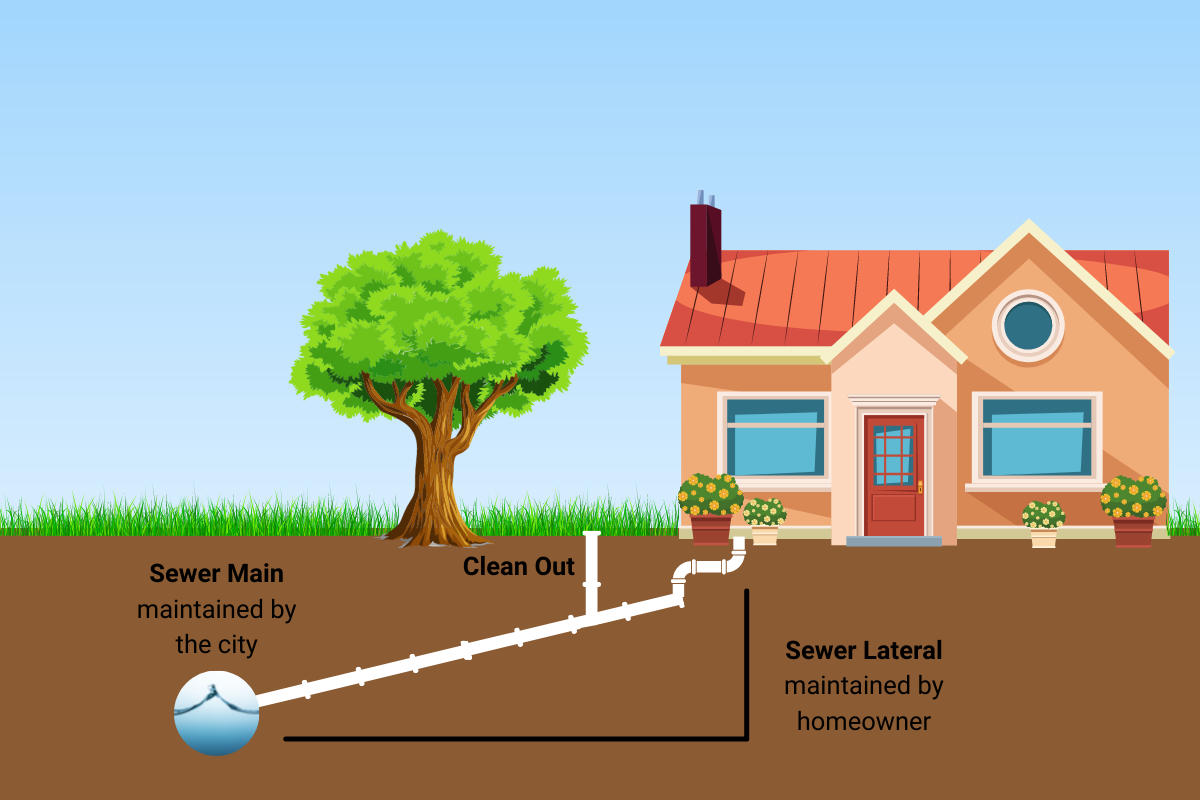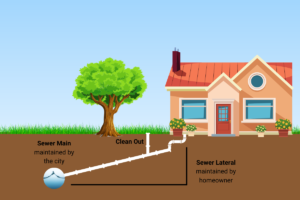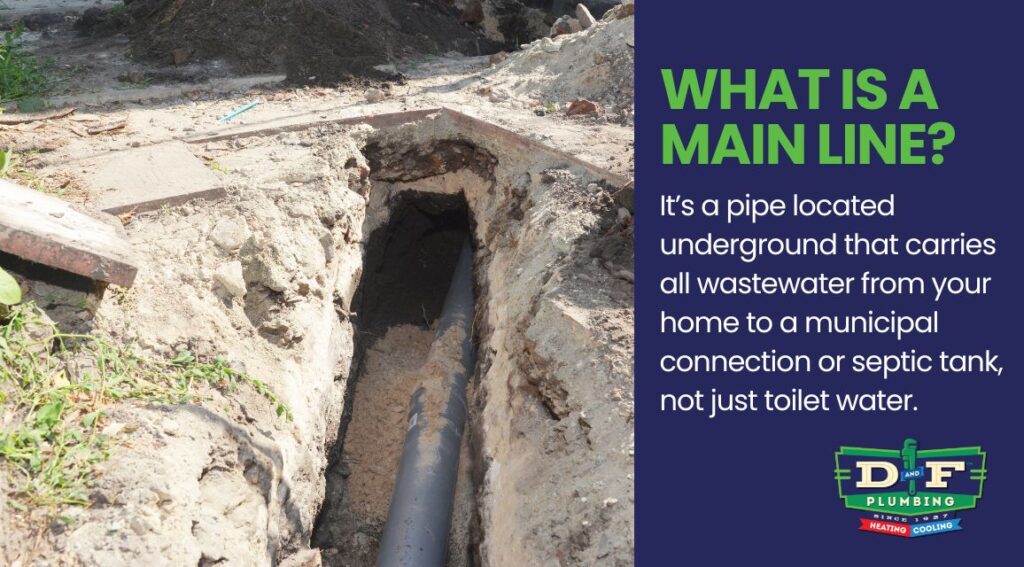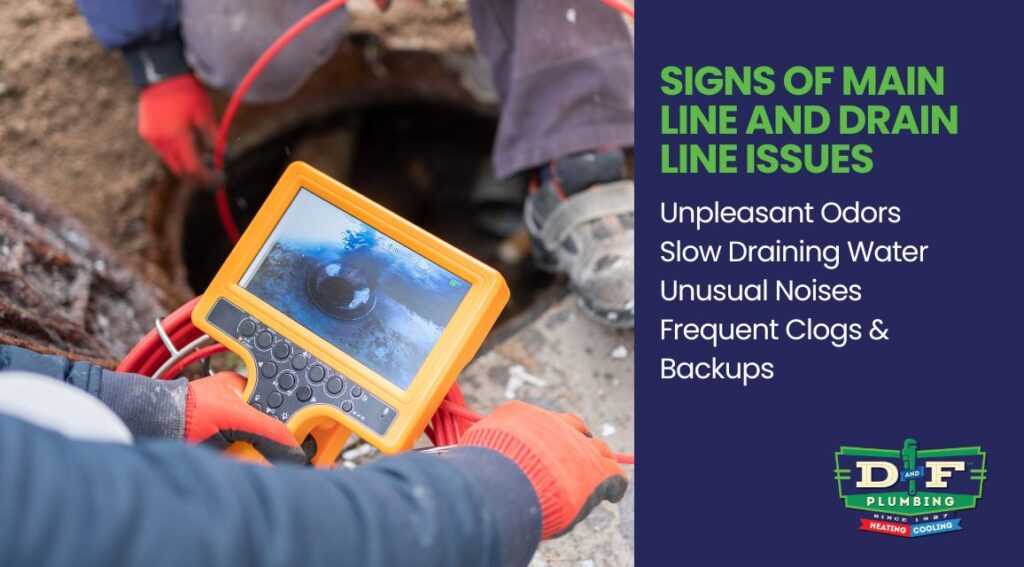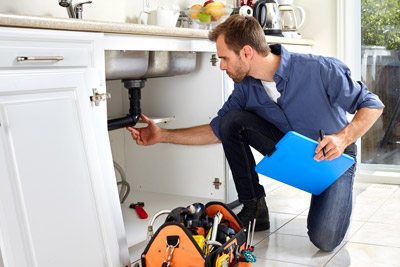For decades, plumbing has carried a reputation of drooping drawers, beat-up vans, and sloppy service that ends when the check clears. But hiring a journeyman plumber means a red carpet experience instead!
At D&F Plumbing, Heating and Cooling, we’ve spent nearly 100 years rebuilding that stereotype. Our Plaid Pros complete a rigorous education spanning half a decade and thousands of hours in the field. That’s why our team is trusted for residential, commercial, and new construction plumbing projects in Portland, OR and Vancouver, WA.
Here’s what that commitment to education and integrity means when we show up at your door.
What Is a Licensed Plumber?
A licensed plumber is a professional who has met state requirements for training, testing, and ongoing education. Holding this license means the plumber can legally perform work on your home or business and is accountable to state codes and safety standards.
It’s important to note the difference between an individual plumber and a licensed plumbing contractor. An individual license (often called journeyman) belongs to the plumber doing the hands-on work. A contractor’s license belongs to the company, allowing it to bid jobs, pull permits, and hire licensed plumbers.
In Oregon and Washington, the plumber doing work in your home must personally hold that license. Some companies cut corners by sending unlicensed techs under the owner’s license, but that’s illegal.
When you hire D&F, you’re getting both: a licensed plumbing company staffed with licensed journeyman plumbers.
How Do I Know If a Plumber Is Licensed and Insured?
Hiring a plumber is a big decision, and the right questions up front can protect you from costly mistakes. Here’s a quick checklist you can use before letting anyone start work in your home or business:
- Ask for the plumber’s state license number and verify it.
- Check with the Oregon or Washington state licensing board to confirm it’s active (more on this below).
- Request proof of liability insurance and workers’ compensation coverage.
- Confirm the plumber or company is bonded in case something goes wrong.
Taking five minutes to check these details gives you reassurance that your plumber is qualified to work on your plumbing. If they dodge the question, that’s your cue to run faster than water out of a busted pipe.
A legit plumber will be proud to show off their credentials (after all, they worked hard for them!).
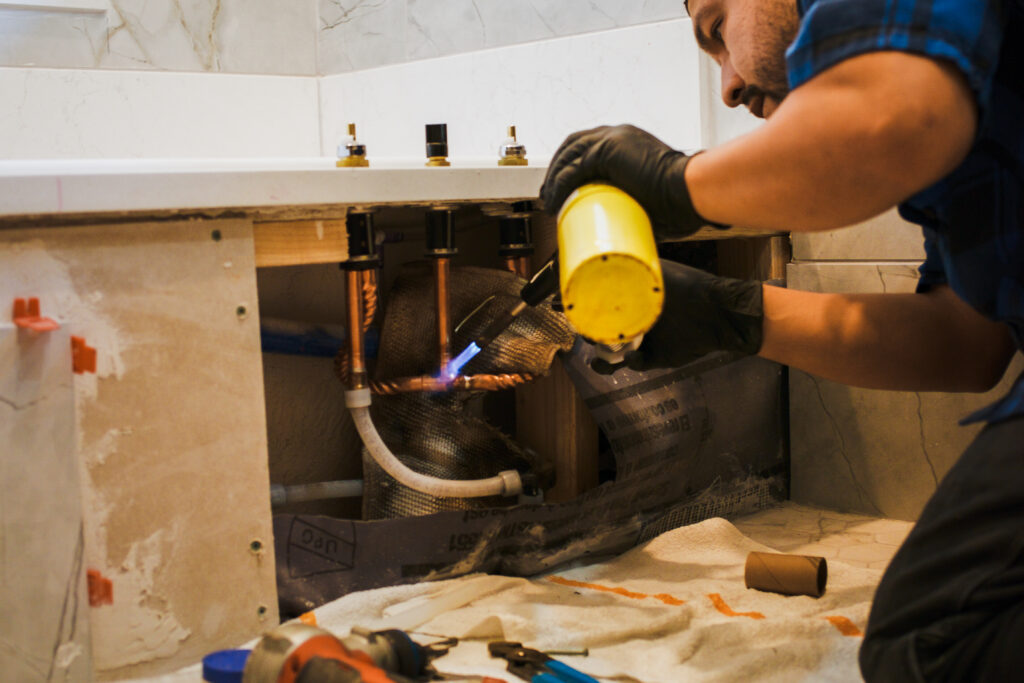
How to Check If a Plumbing Company Is Licensed
Making sure a company is properly licensed is simple once you know where to look. Both Oregon and Washington maintain online databases where you can enter a business name or license number.
- In Oregon, you can verify through the Oregon Construction Contractors Board (CCB) consumer search tool.
- In Washington, you can search the Department of Labor & Industries (L&I) contractor database.
It’s easier than Facebook-stalking your old high school classmates to see who aged well. And a quick search is all it takes to know your plumber is playing by the rules. If the search comes up empty or the license has expired, that’s a big red flag.
What Is a Journeyman Plumber?
A journeyman plumber is a licensed professional who has completed years of training and passed the state exam to prove they know their stuff. Unlike an apprentice, who’s still learning under supervision, a journeyman can work independently and is trusted to handle everything from fixing leaks to installing entire plumbing systems.
And unlike an unlicensed handyman, a journeyman plumber is accountable to state codes and industry standards, which means no cutting corners or leaving you with surprise problems down the road.
Think of it this way: apprentices are the students, journeymen are the graduates, and unlicensed workers? They’re the ones who never stepped foot in a classroom.
When you hire a journeyman plumber, you’re hiring someone who’s put in the hours, proven their skills, and earned the right to work on your home or business with confidence.
How Long Does It Take to Get a Journeyman Plumbing License?
Becoming a journeyman plumber doesn’t happen overnight. In Oregon and Washington, it’s a commitment that rivals the time it takes to earn a college degree plus an internship.
Here’s what that journey looks like:
- 5 years of apprenticeship training under licensed plumbers
- 8,000 hours of supervised fieldwork
- Classroom instruction covering codes, safety, and system design
- Passing the state exam to prove it all stuck
By the time someone earns their journeyman license, they’ve already tackled problems most homeowners hope they’ll never see (and they’ve been trained to fix them the right way).
Training Beyond the Journeyman License
Training doesn’t stop once our plumbers get their journeyman license. Graduates must log continuing education hours every year to keep their license.
Our team also earns specialty certifications in safety, confined space work, trench shoring, and new product training.
Every tech stays current with safety codes, which is critical for how you live today and when it’s time to resell your property later.
Then there’s the part no textbook covers: how to treat people.
D&F’s in-house coaching covers punctuality, communication, professionalism, and respect for every customer. Translation? Pros who fix the issue and protect your space while doing it.
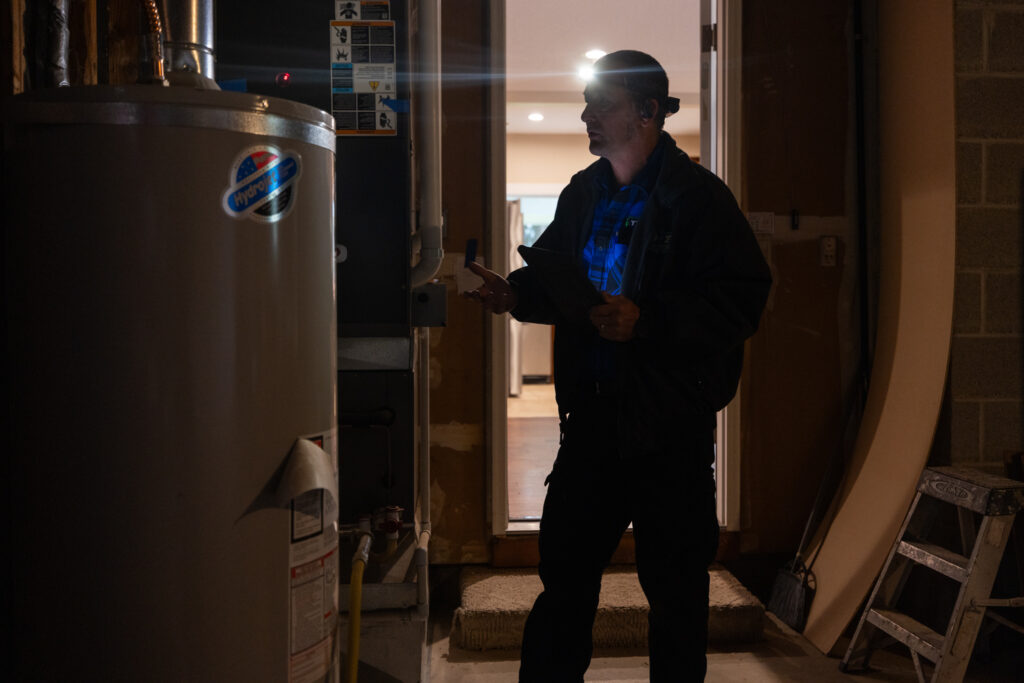
Meet the Professional Plumbers Behind D&F’s Reputation
The best way to understand the value of journeyman training is to meet the people who’ve lived it. At D&F, our plumbers are known as the “Plaid Pros” (a nod to our signature blue-plaid shirts that reflect the Pacific Northwest’s lumberjack grit, Portland’s hipster flair, and the outdoorsy spirit of our region).
Behind every plaid shirt is a story of training and experience. For some, it’s decades of craftsmanship. For others, it’s the journey of learning the trade from the ground up.
One of our Plaid Pros, John H., has been a licensed plumber for 37 years, specializing in residential remodels and additions where precision is everything. He represents the seasoned expertise homeowners count on.
Scott L., meanwhile, is finishing his final year as an apprentice. He started at D&F right after high school in a support role; digging trenches, hauling supplies, and helping crews with the tough physical work that keeps jobs moving.
He patiently waited 5 years until an apprenticeship spot opened. Today, he’s one of three apprentices training under licensed journeymen like John.
Their careers highlight how D&F invests in people. Employees gain lifelong skills, steady wages, and fantastic benefits. Homeowners gain something just as valuable: plumbing that lasts and service they can trust.
Interested in becoming one of the Plaid Pros? Check our Careers page for open positions!
Why Is It Important to Have Licensed Professionals Handle Plumbing Repairs?
Hiring licensed professionals for plumbing repairs matters because the risks of unlicensed work can threaten both your wallet and your health. Plumbing brings safe drinking water into your home and carries wastewater away. When repairs aren’t done correctly, you could face more than costly damage.
Contaminated water, sewage backups, or mold growth can put your family’s health at risk and impact the wider community.
Licensed plumbers are trained to do the job right the first time, with accountability to state codes and ongoing education to stay current. They protect not only your home but also the health standards your entire neighborhood relies on.
An unlicensed “fix” might look cheaper up front, but when the water damage or health hazards show up later, that bargain disappears faster than hot water in a teenager’s shower.
What Is the Difference Between Licensed and Unlicensed Plumbing Work?
Here’s how licensed plumbing work stacks up against unlicensed:
- Legal compliance: Licensed plumbers must follow state codes and regulations.
- Insurance coverage: Licensed professionals carry liability insurance and worker’s comp.
- Warranty protection: Manufacturer and service warranties remain valid when licensed plumbers do the work.
- Proper training and testing: Licensing requires years of apprenticeship, classroom hours, and passing state exams.
- Accountability and recourse: If something goes wrong, licensed plumbers and companies can be held responsible. Unlicensed workers simply walk away.
With a licensed plumber, you’re not just paying for the repair. You’re paying for peace of mind.
How to Find a Licensed Plumber for Home Plumbing Repairs
If you’ve ever wondered who is the best plumber in Portland, OR, the answer depends on more than flashy ads or the lowest price tag. The key is knowing how to find a reliable plumber in the area. With so many options, it helps to have a simple process you can follow.
Here are five steps to make sure you’re hiring someone who’s qualified, trustworthy, and worth letting through your front door:
- Verify license and insurance: Ask for their license number and proof of insurance.
- Read reviews: Check Google, Yelp, or Angi to see how past customers describe their experience. One or two bad reviews? Normal. A pattern of problems? Time to move on.
- Ask about warranties and guarantees: A good plumber will stand behind their work. We offer a workmanship guarantee on labor and parts. And by having licensed pros like us handle your install, you won’t risk voiding the manufacturer’s warranty on your new equipment.
- Compare estimates (but don’t default to the lowest): The cheapest option can end up costing the most once repairs fail. Look for value, not just price.
- Look for local experience: A plumber who knows Portland and Vancouver understands the local codes, water systems, weather’s impact, common plumbing problems, and even those pesky old pipes hiding in historic homes. While private equity firms are busy buying up plumbing companies across the country, we’re still family-owned, operated, and as local as it gets.
Follow these steps, and you’ll have the confidence that the person fixing your plumbing is qualified, accountable, and ready to do it right the first time.
Residential, Commercial, and New Construction Plumbing in Portland and Vancouver
Licensed journeyman plumbers at D&F handle every kind of project across Oregon and Washington. Whether it’s a dripping faucet at home, a major repair in a commercial building, or installing plumbing in a brand-new development, our team brings the same level of skill and professionalism. Customers throughout Portland and Vancouver know the Plaid Pros can handle it all!
Residential Plumbing Company
For homeowners, plumbing problems usually strike at the worst time: a cold shower before work, a clogged drain when guests arrive, or a water heater that suddenly calls it quits.
Our licensed plumbers know how to fix those residential plumbing issues quickly and safely, without cutting corners.
We handle all the essentials:
- Water heater installs and repairs
- Remodels and bathroom/kitchen upgrades
- Whole-home repiping projects
- Drain cleaning and clog removal
The goal is simple: keep your household running smoothly with plumbing that lasts. Because no one wants to explain to their in-laws why the guest bathroom sink is out of order again.
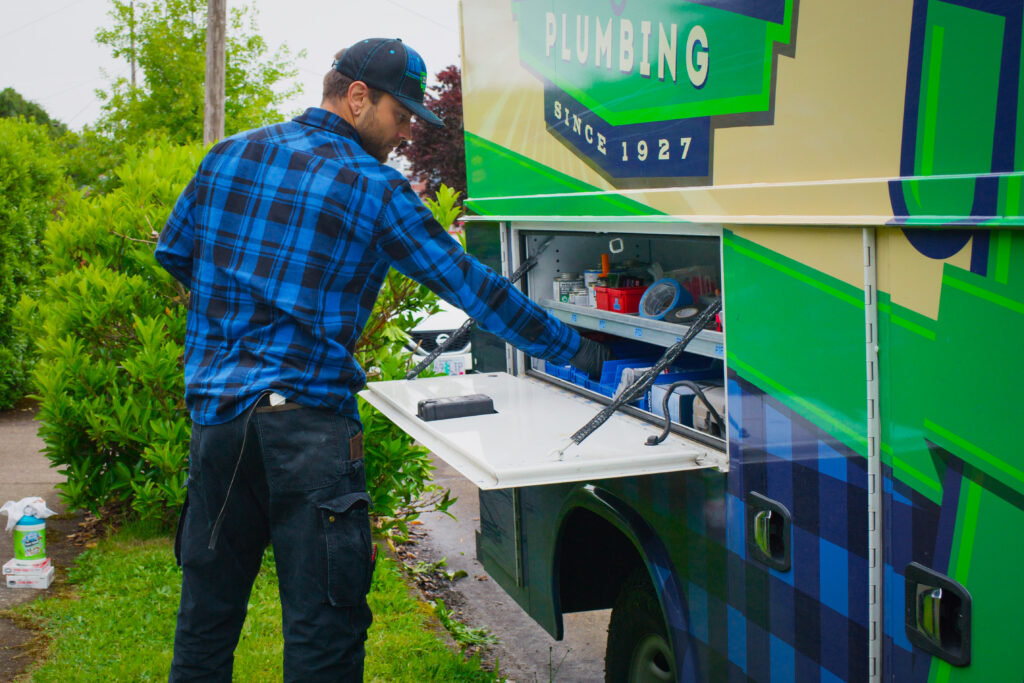
Commercial Plumbing Contractors
Commercial plumbing takes a different level of expertise. Office buildings, restaurants, and retail spaces rely on systems that have to handle heavy use every single day. A small mistake here can shut down operations and cost businesses serious money.
Our licensed journeyman plumbers are trained for:
- Safety code compliance
- Trenching and large-scale pipe work
- Repairs that minimize downtime
- Ongoing maintenance to prevent future issues
From emergency repairs to planned upgrades, we help Portland and Vancouver businesses stay open and compliant. Our plumbing protects your bottom line as much as your pipes!
New Construction Plumbing
When it comes to new builds, plumbing has to be done right the first time. Our team partners with local builders to design and install plumbing systems that meet strict code requirements and support the long-term value of the property.
We’re known for:
- Reliable scheduling that keeps projects on track
- Full compliance with Oregon and Washington building codes
- Coordination with other trades to avoid delays
Builders trust us because we show up, we deliver, and we stand behind our work. It’s one more reason Pacific Northwest developers count on the Plaid Pros to help bring their new construction projects to life.
Better Than DIY or the Lowest Bid
Going cheap or trying a YouTube “hack” can backfire fast. Hidden leaks, repeat failures, and code violations can cost thousands and may even void warranties on your most expensive systems.
D&F technicians arrive with the training and tools to solve the problem completely. No shortcuts. No guesswork. That’s why more than 60,000 homeowners across Portland and Vancouver have trusted the Plaid Pros since 1927.
When it comes to plumbing, the cheapest option is rarely the best… but the right option doesn’t have to break the bank either.
If affordability is a concern, you don’t have to settle for second-rate work. We offer flexible financing for larger projects and regularly update our specials so you can save without compromising on quality.
Ready to work with licensed plumbers you can trust? Contact D&F Plumbing, Heating and Cooling today or schedule service online. The Plaid Pros are here when you need us!
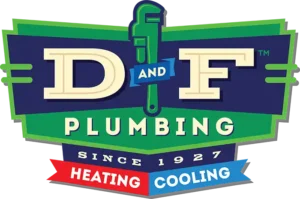
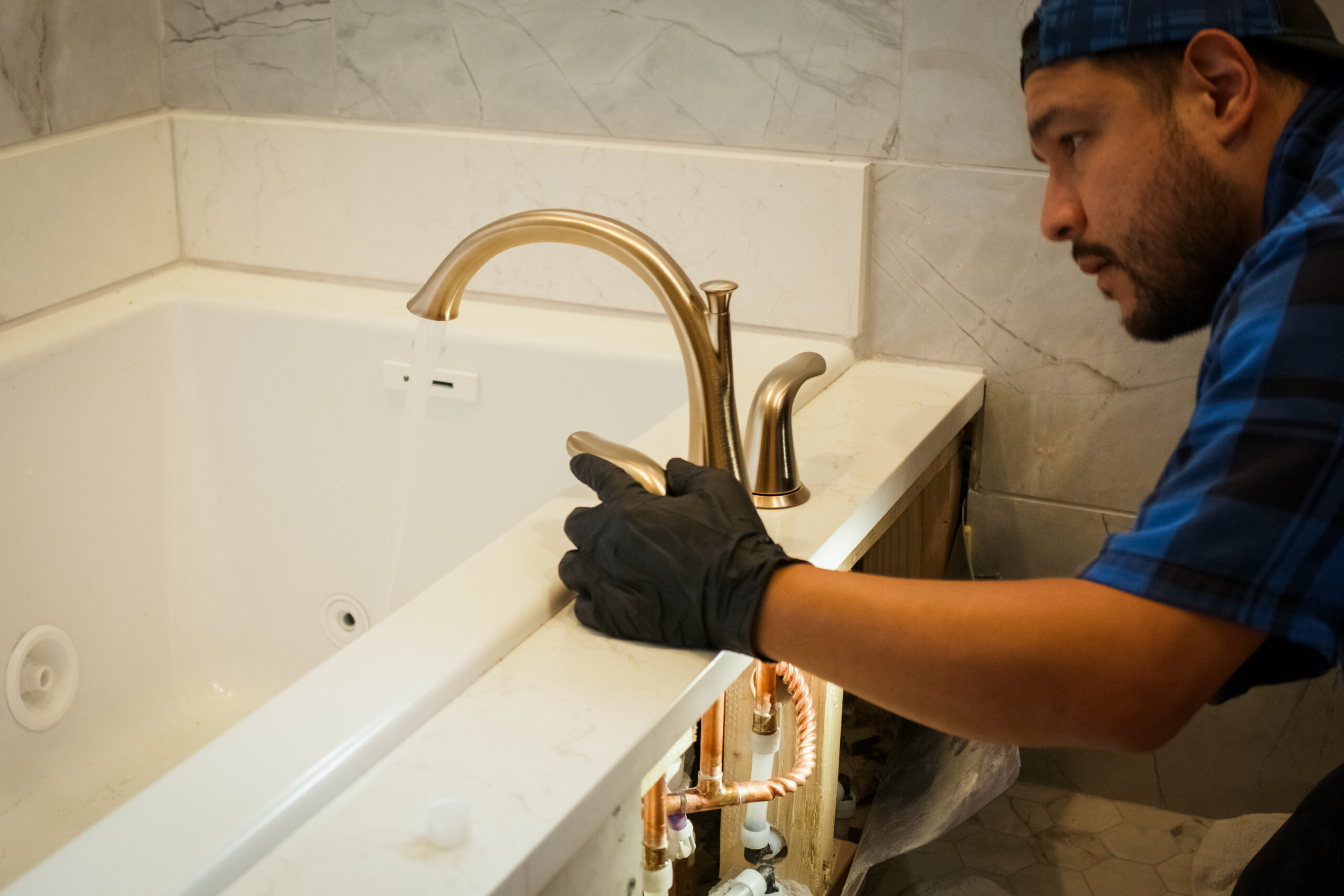
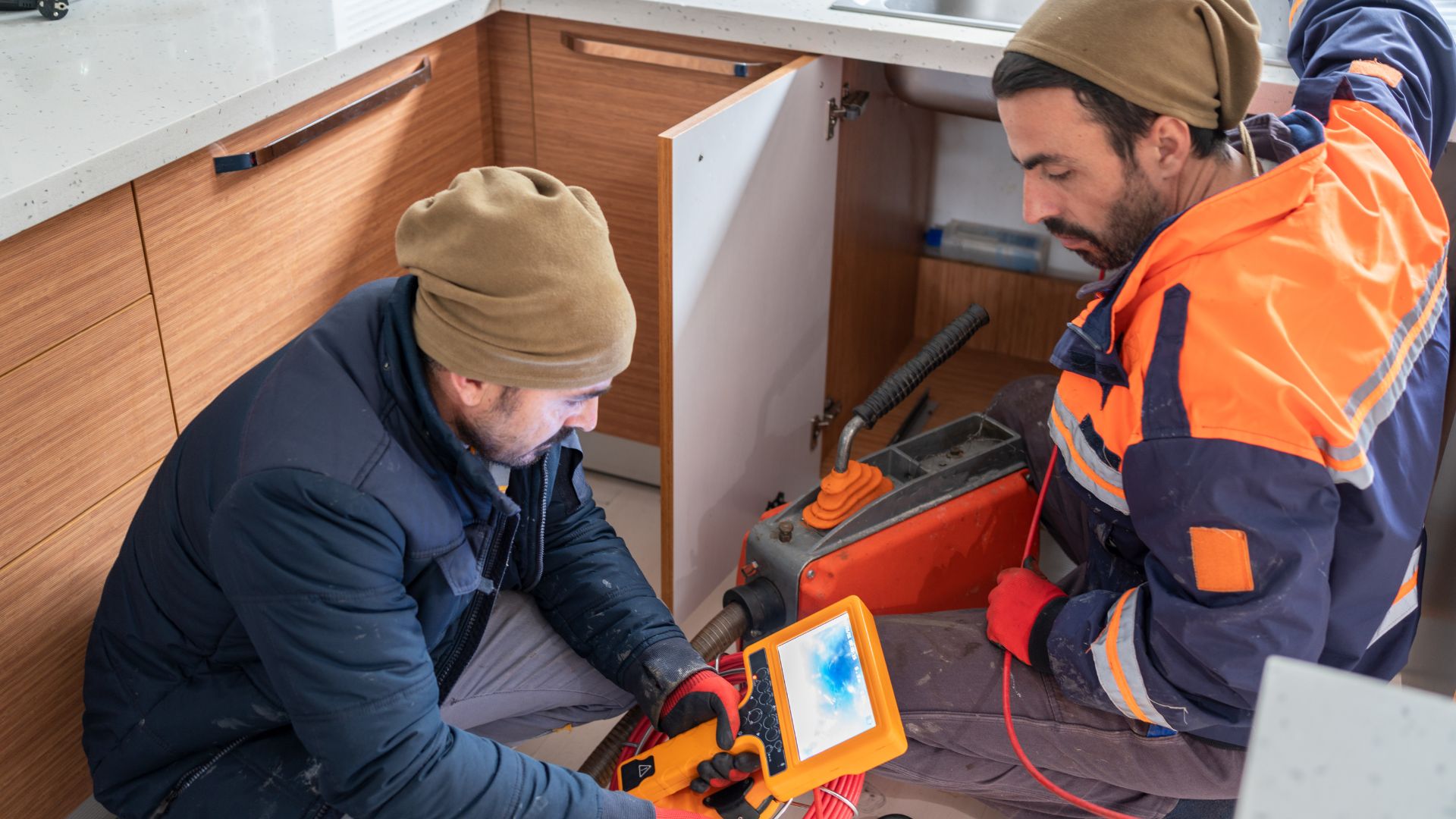
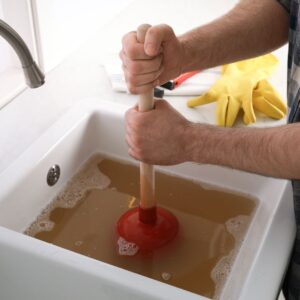
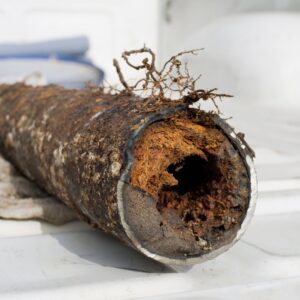
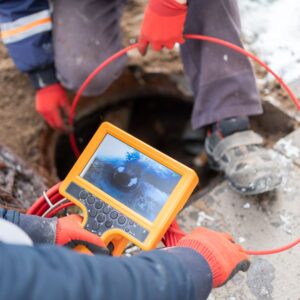

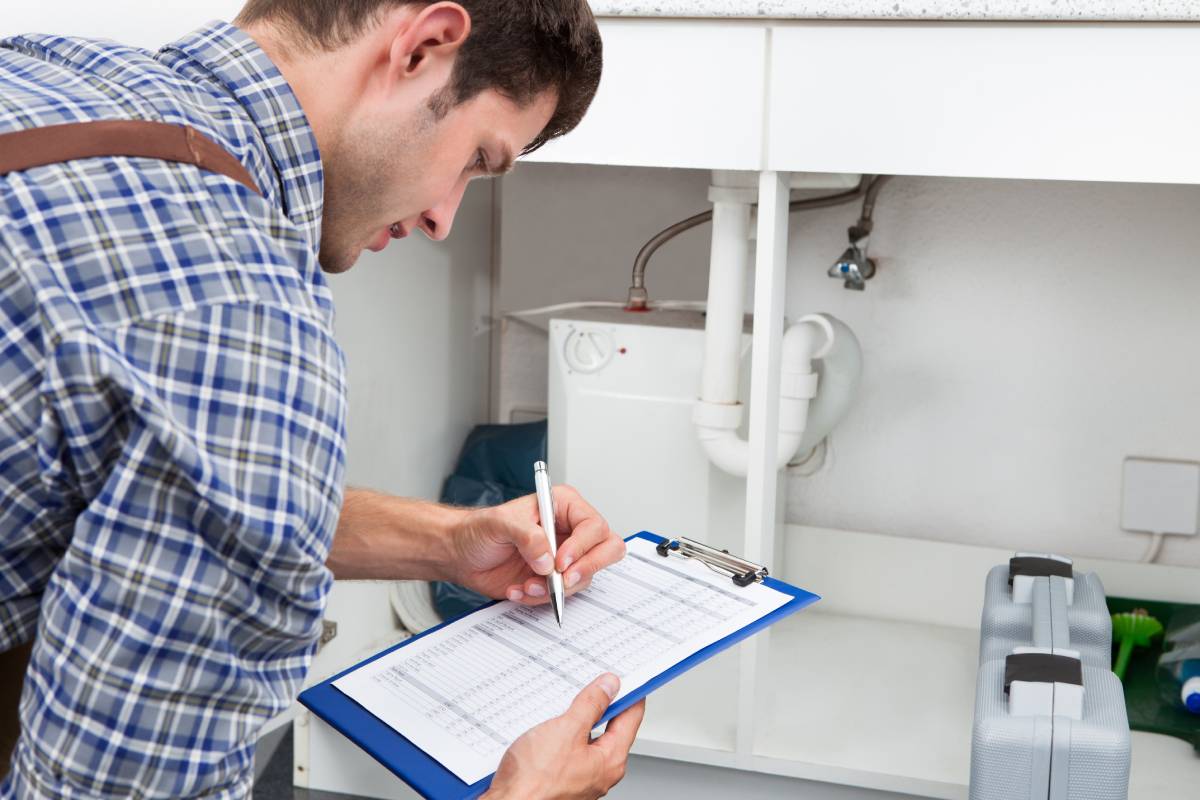
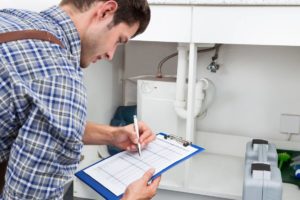 Spring has sprung, but hopefully a leak hasn’t! With the warmer weather rolling in, it’s time to tackle that to-do list that’s been piling up all winter – and that includes taking a look at your plumbing system. To make sure your system is in great shape for the new season, go through this spring plumbing checklist:
Spring has sprung, but hopefully a leak hasn’t! With the warmer weather rolling in, it’s time to tackle that to-do list that’s been piling up all winter – and that includes taking a look at your plumbing system. To make sure your system is in great shape for the new season, go through this spring plumbing checklist: